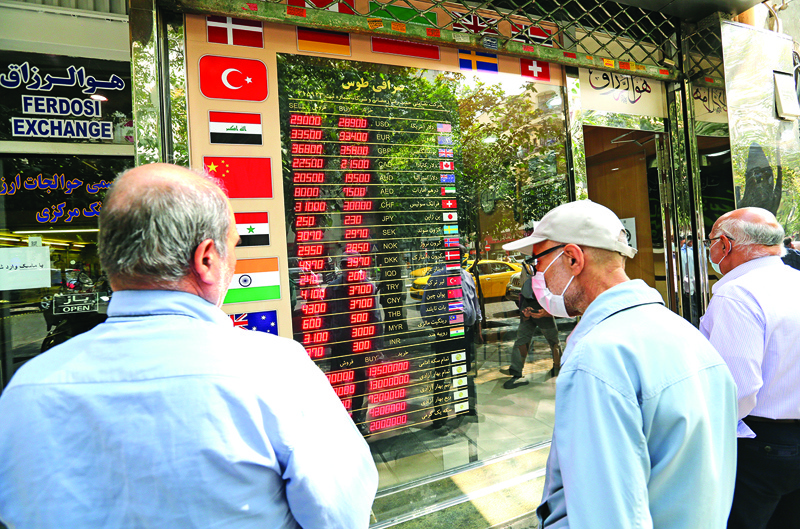
NEW DELHI: Millions of people in South Asia are being pushed into extreme poverty as the region where a quarter of humanity lives suffers its worst-ever recession due to the devastating impact of the coronavirus pandemic, the World Bank said yesterday.
The multi-lateral lender forecast a record economic contraction of 7.7 percent for South Asia this year, and said workers in the informal sector were being hit hardest, and private consumption was unlikely to recover quickly from the blow. "The impact on livelihoods will even be larger than the GDP forecast suggests…This implies that the region will experience a sharp increase in the poverty rate," the bank said in its bi-annual report.
India, the region's biggest economy, is likely to see its economy contract by 9.5 percent this year, the report said. The report warned that South Asia's economies could end up worse than the forecast as the pandemic continues to surge, making foreign investors more wary, limiting governments' ability to increase spending and putting more strain on banking systems already heavily burdened with bad loans. With 6.84 million people infected, including 105,000 dead, India's COVID-19 caseload is second only to the United States, despite the country going under the strictest lockdown in the initial phase of the pandemic in March.
Pakistan and Bangladesh have recorded over 317,000 cases each, while the rest of the countries in the region have combined total of over 149,000 cases.
Meanwhile, the coronavirus crisis is expected to drive a 3.3 percent contraction in sub-Saharan African economies in 2020 and could push 40 million people into extreme poverty, the World Bank said yesterday.
The Washington-based lender said growth in the region would recover in 2021, with economies growing by 2.1 percent, below 2019's growth of 2.4 percent.
"The COVID-19 pandemic has taken a large toll on economic activity in sub-Saharan Africa, putting a decade of hard-won economic progress at risk," the bank said.
Apart from South Africa, the region appears to have so far escaped the worst of the health crisis, accounting for 3.4 percent of global infections and 2.5 percent of deaths, but the World Bank warned of potential risks from the virus.
"Great uncertainty surrounds the scale and trajectory of the pandemic in the region," it said, citing the experience of European nations and the United States, which are going through a second wave of infections.
The pandemic is expected to regress the economic output per person to 2007 levels by the end of next year, the bank said, and disrupt learning for 235 million students. This year's economic growth is expected to be hit by the lockdowns put in place by governments to curb the spread of the virus, and the impact of the global slowdown.
"Disruptions in the tourism industry and lockdowns will cause substantial slow-downs in Ethiopia, Kenya, and the island nations," the World Bank said. Economies which are not overly reliant on commodities, like Ivory Coast, Ghana and Senegal, will be spared from steep contractions, thanks to fairly robust outputs in their farming sectors, the bank said.
Governments in the region should take steps to boost their capacity to recover from the impact of the crisis, the World Bank said. "Countries need to reconstitute their fiscal space to finance programs that can stimulate recovery, improve debt management, and fight corruption," the lender said. - Reuters











